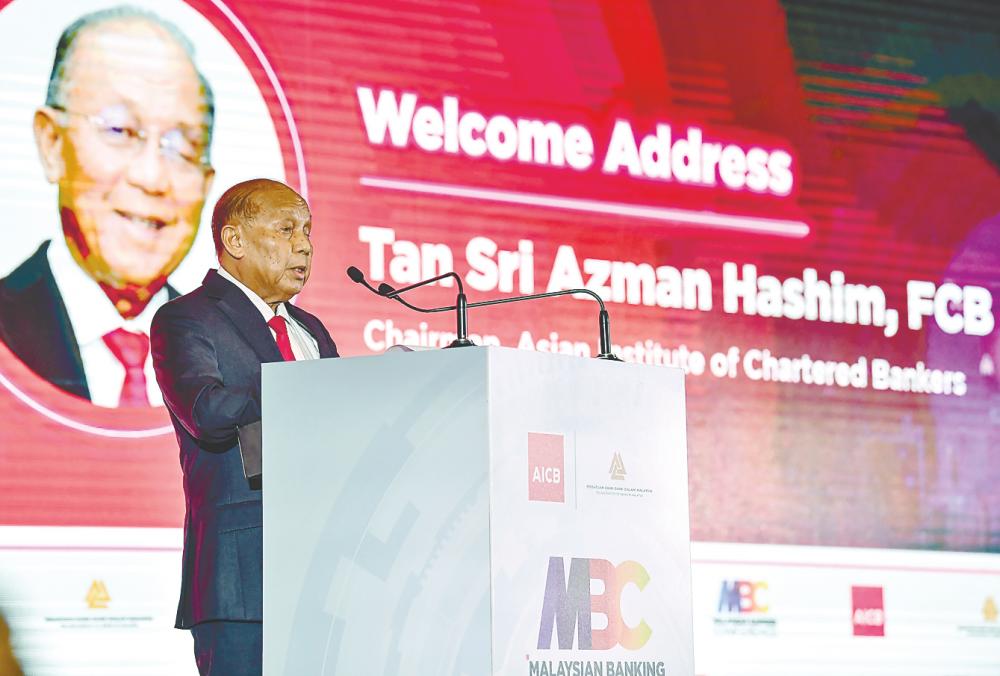KUALA LUMPUR: The banking sector is looking closely at the opportunities offered by generative artificial intelligence (GenAI) as it has the potential to unlock US$113.4 billion in productive capacity in the Malaysian economy.
Asian Institute of Chartered Bankers (AICB) chairman Tan Sri Azman Hashim said the financial sector has always been a pioneer in technological innovation, and the banking sector has been using AI in its value chain for some time.
“We, as stewards of the country’s financial health, recognise the pivotal role that the banking industry plays in building the nation’s burgeoning digital economy,” he said today in his welcome address at the Malaysian Banking Conference 2024: Banking in the Era of GenAI – Reshaping Banking, Innovating for the New Economy, and Accelerating Sustainability.
The conference highlighted the role GenAI could play in elevating Malaysia’s financial sector to the next level and how banks could embrace and scale GenAI responsibly, transitioning from experimentation to delivering powerful digital transformations across banks’ operations and supporting a just transition.
With these developments comes the need for future-fit banking talents with the skills and knowledge to drive an AI-powered just transition, Azman said.
The institute, he added, has launched several courses on environmental, social, and governance, digital, and AI to support the industry’s capacity-building needs.
The Future Skills Framework (FSF), an initiative led by AICB with the Islamic Banking and Finance Institute Malaysia and the Malaysian Insurance Institute will be launched on July 22, he said. “The FSF is a pivotal component of Bank Negara Malaysia’s Financial Sector Blueprint 2022–2026 and aims to propel skills mastery and constant learning across the financial sector talent ecosystem, fostering a future-ready workforce, and advancing Malaysia’s financial industry.”
Digital Minister Gobind Singh Deo said financial institutions need to look at three important issues – infrastructure, cybersecurity, and upskilling or reskilling – when using new technologies such as AI.
“Secondly, with a good infrastructure, we have to make sure it is secure. Finally, we have to ensure that the workforce knows how to use the infrastructure,“ he told reporters on the sidelines of the conference. “This infrastructure is very important. Without it, we cannot connect with customers and make transactions online.”
Gobind said the banking sector workforce must know the challenges posed by this new technology which impacts certain job clusters and the public has to accept the importance of the digital economy to the country because it will contribute enormously to gross domestic product (GDP).
“Malaysia needs to be prepared because we are competing domestically, with Asean countries and globally. We can achieve the digital economy’s targeted 25.5% contribution to GDP by the end of next year. I think we can reach a larger figure than that,“ he said.
On cybersecurity, Gobind noted that his ministry tabled the first reading Personal Data Protection Act (Amendment) Bill 2024 in the Dewan Rakyat yesterday.
The amendment aims to increase the penalty to RM1 million from RM300,000 for offences committed by data controllers or data processors violating personal data protection principles, he explained.
The second reading will also be tabled at the current Parliament session, which proves the government's commitment to cybersecurity and the protection of personal data, he said. – Bernama









